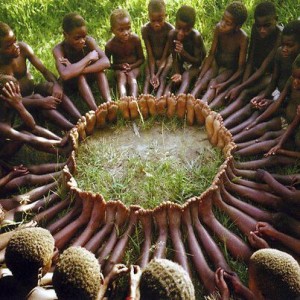First, I must apologize to my newsletter subscribers. Wednesday was my first “forget.” Please forgive me for a “Chariot Notes” no-show! It WILL be in your mail next Wednesday.
Lately, I’ve read articles on communal civilizations, where money had no value, no one bartered for services, and there was no societal hierarchy—no one “lording” over another. There were no egos.
One or two families tended the land, planted the crops, and harvested its produce. For instance: if it was rice, someone else’s job was storing and cooking it; another person ground it into mill for bread; someone else prepared the bread.
The fishermen fished the streams and lakes. The shepherds cared for the sheep. The shearers sheared. The fleecers prepared the fleece into yarn, then, the yarn was spun, and knitted into clothing.
Vegetables and fruit were the same. Those living in the fields, gardens, and orchards tended, picked, and prepared its produce. The same went for maintaining and directing the water supply for irrigation, drinking, cooking, and hygiene. Each occupation was passed down through the generations.
“For even when we were with you, this we commanded you, that if any would not work, neither should he eat.” 2 Thessalonians 3:10 (KJV)
These weren’t responcibilities. Each member of the village/tribe considered it their sacred rite to the circle of life…so that they could live. What was of value was each member’s contribution to the community. The shepherds ate from the land and wore the clothes, just as the clothiers drank the milk and ate the cheese from the sheep.
No one was homeless, hungry, or naked.
There was no delinquency; no crime; no competition; no stress.
There was no need for banks, government handouts, counseling centers, fitness gyms, farmer’s markets, restaurants, civic centers.
Rural life wasn’t easy, but everyone shared everything. Everything, and everyone, was safe.
However, following taking into account the deeprootsmag.org buy generic viagra tumor stage, the tumor grade, the man’s age along with the man’s overall wellness, some medical practitioners would advocate other treatment methods.
What would you say was the common denominator for such peaceful coexistence?
R.S.V.P.
Here’s the heartwarming result of such harmony:
An anthropologist proposed a game to the kids in an African tribe. He put a basket full of fruit near a tree and told the kids that whoever got there first won the sweet fruits.
When he told them to run, they all took each other’s hands and ran together, then sat together enjoying their treats.
When he asked them why they had run like that, as one could have had all the fruits for himself, they said:
”UBUNTU, how can one of us be happy if all the other ones are sad?”
‘UBUNTU’ in the Xhosa culture means: “I am because we are”
It sounds like God’s original plan, don’t you think?

